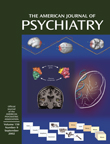A Hazardous Profession: War, Journalists, and Psychopathology
Abstract
OBJECTIVE: War journalists often confront situations of extreme danger in their work. Despite this, information on their psychological well-being is lacking. METHOD: The authors used self-report questionnaires to assess 140 war journalists, who recorded symptoms of posttraumatic stress disorder (PTSD) (with the Impact of Event Scale—Revised), depression (with the Beck Depression Inventory-II), and psychological distress (with the 28-item General Health Questionnaire). To control for stresses generic to all journalism, the authors used the same instruments to assess 107 journalists who had never covered war. A second phase of the study involved interviews with one in five journalists from both groups, using the Structured Clinical Interview for Axis I DSM-IV Disorders. RESULTS: The rates of response to the self-report questionnaires were approximately 80% for both groups. There were no demographic differences between groups. Both male and female war journalists had significantly higher weekly alcohol consumption. The war journalists had higher scores on the Impact of Event Scale and the Beck Depression Inventory. Their lifetime prevalence of PTSD was 28.6%, and the rates were 21.4% for major depression and 14.3% for substance abuse. War journalists were not, however, more likely to receive treatment for these disorders. CONCLUSIONS: War journalists have significantly more psychiatric difficulties than journalists who do not report on war. In particular, the lifetime prevalence of PTSD is similar to rates reported for combat veterans, while the rate of major depression exceeds that of the general population. These results, which need replicating, should alert news organizations that significant psychological distress may occur in many war journalists and often goes untreated.



